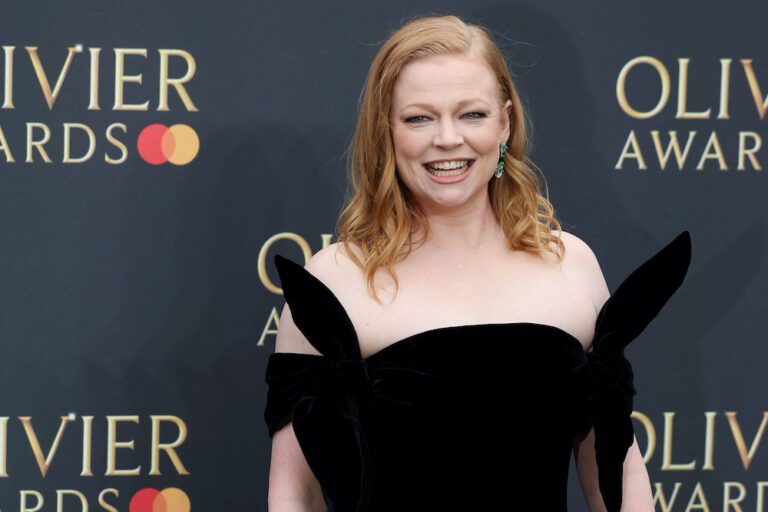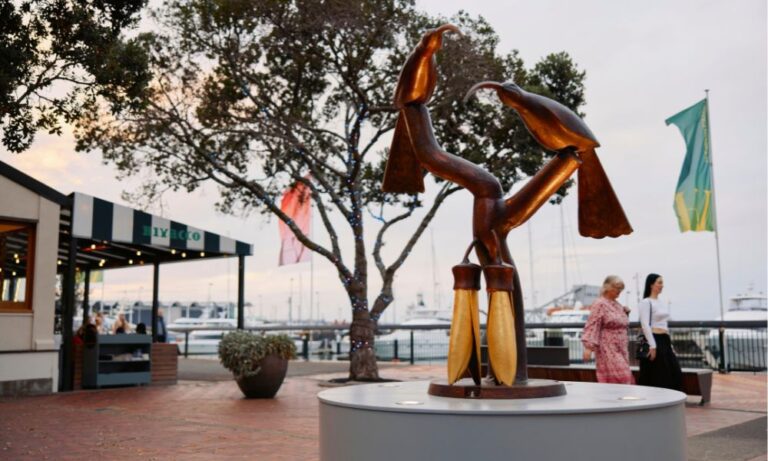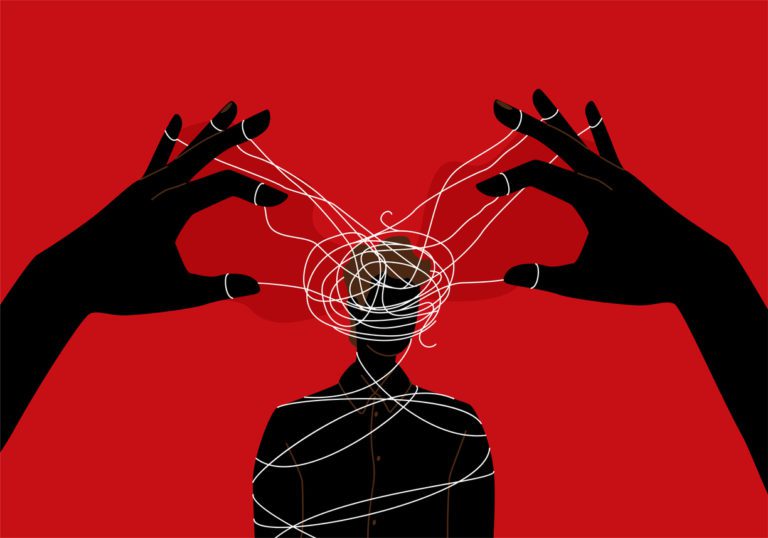Paul and Katie had spent a lifetime together in love. But when doctors gave them the terminal diagnosis, they had to find the strength to make one final journey together.
Nobody told me what death would be like. God knows I feared it – watching you die slowly was agony each minute of every day for 22 months. The numbness.
From the first shock diagnosis: “Two months to live”.
Do we try and fight it with many operations, many rounds of chemo and radiation and the same outcome? Or do we choose something called ‘hope’?
Every night holding my breath, checking that you were alive beside me, trying not to open my eyes each morning in case you had died next to me; the awful mind games.
The unfairness of making this wonderful man whom I married 35 years earlier suffer so dreadfully. He was a good, honest, hardworking, loving, kind and generous man, one of principle, and a man amongst men. A wonderful husband, friend, lover, son, father and brother.
“Katie,” he would say every morning, “we have two choices – happy or sad? Let’s choose ‘happy’.”
And so it was that we chose to hope.
Through endless hospital wards, doctors, surgeons, specialists, 28 rounds of gruelling chemotherapy, six major operations, 11 rounds of radiation, SIR-Spheres trials of radioactive beads to treat the tumours, we still chose hope.
Then one day, we heard: “I’m sorry, you need to go home now and get ready to die. No more chemo will help you, we cannot repair any of your broken bones, we can only offer you morphine and somebody to talk to if you need help.”
Help to talk about what? Had they died and gone to wherever you go? Had they suffered such pain? Was there a formula you had to try in order to die properly? Did a priest know something that you should know? Had he been to visit God in heaven, this God who seemed not to care about the suffering?
This God who had ignored my prayers. All those people who offered help but never came near after the first shock diagnosis. The hushed tones … why is that? Just because you are dying does not mean that you cannot hear and feel and still want to be treated normally. Why couldn’t people see that? I knew why. It was fear for themselves.
That night, you collapsed as I was showering you. Another bone snapped. You shivered and shook as I put another morphine patch on you. You did not want the palliative care nurses to help. You only wanted me, you said. I could not tell you that I was terrified. I was not a nurse. I phoned them often, secretly, while you were sleeping. They reassured me and told me what to do when you became confused and angry, and explained to me what the medication would do to you. They heard my frightened voice and reassured me.
You changed before my eyes. Your voice changed. Your eyes changed. You no longer cared. The drugs made you a zombie. Sleeping, waking, barely eating, sleeping.
Then the wheelchair came. But even then, towards the very end, you tried to protect me, making light of the two ambulances and the indignity of that final day when we had to go to palliative care.
Our little dogs howled as the ambulances left. I could not console them. They knew you were not coming home. When I got to the palliative care hospital, the doctor had put another line into your ‘portacath’ with heavier drugs. You greeted me with joy, high on drugs. I climbed into bed with you. You cradled me in your arms and told me, “I love you Katie. God blessed me when he gave me you.”
It seemed to me that you were sleeping, and I watched your feet go blue and then your legs. Your hands were wrapped round mine. Your breathing became raspy and difficult. I gave you little bits of ice to stop your lips cracking. I read you text messages from friends. I told you the children were on their way. I read you our favourite quotes and inspirational sayings, one that still stays with me even today: “Fear is as great as the mind allows, rather look back with thanks and look forward with confidence.”
As I sat there holding you, I saw you as a little boy. Funny that, as I only had one photo of you as a little boy that your mother had given me.
I saw you standing, watching our young sons with tears of pride and joy.
I saw you looking up as I walked down the aisle with such a goofy smile on your face. I felt your breath on my face, in my hair, on my neck. I felt your love and strength.
As I held you there in that foreign place where many people were dying too, I did not see them. All I could see was your life as it played before me. A happy life, but also one with many challenges and achievements.
I saw us laughing and dancing in the rain, falling and rolling down the hill. We were not drunk, or maybe we were, drunk in happiness and love. I saw you looking at me as we danced the night away, swaying to the music in ecstasy.
I felt your smile as you slept in my arms, dying slowly. You were living this with me, weren’t you?
I saw your arms around me, cradling me when my sister was dying. I felt your touch on my shoulder and turned to see your eyes. They were open. They were seeing me. I spoke to you then. You closed your eyes and smiled.
I moved then and gave you more ice. You opened your eyes again. Your eyes closed again. The nurse came in. She told me I needed to call the family. I had already done that. I had known you were dying. We were saying our goodbyes, weren’t we? You were leading me on a journey, you were showing me the way.
I looked out the window at the setting sun. I saw you on the boat that day, the last time we went boating. You threw in a line half-heartedly, the poor fish never found your bait. I commented about the amount of blind, silly fish who could never find it. You smiled slowly and told me you wanted your ashes spread on the water, as the oceans and rivers all over the world flow into each other, so that wherever I went, you and I would be together in some way.
Me shaking my head and crying without seeing. The sun had gone down and there was a silence with stars twinkling out the window. I watched and wondered whether if I looked, I would see you every night when I walked outside by the pool. You said, “Don’t be daft.”
Your feet were blue. The doctor came back and gave you more morphine. Your body was shutting down. I sat up and looked at you closely as you lay in my arms. I kissed you gently.
Silence.
“What will I do, Paul?” I asked.
“You will know what to do Katie, you always did know, you were the strong one, not me. You will be okay,” I heard you say.
I did not know what the time was. I had been there all night. The phone rang. I jumped. Our eldest son spoke gently to me.
I snuggled under your arm, holding your hand on my cheek. It was cold.
Days earlier, your soccer mate from school, Len, had died suddenly of a heart attack. When I told you the sad news, you just became quiet. I said, “Well, Len will be there to play soccer when you get there … won’t that be nice?”
You laughed and laughed, saying, “Oh my darling, such a Katie thing to say!” I was so apologetic. I had spoken my thoughts out loud.
Suddenly you jolted. I sat up.
The nurse came in. She held my hand. She told me, “He is dying.” I looked at her for the first time, confused. You and I were talking together, weren’t we? Our minds and souls entwined in the moment. You were not dying, surely?
“Don’t leave me, Paul,” I screamed silently. Your body shook slightly.
I saw your immense pain. I saw your determination to fight to stay. It wasn’t fair. You hated being incontinent. You hated not being able to drive. Hated people staring at you in a wheelchair. The constant pain, endless needles, ulcers, sores, and awful nausea. The stomach bags, the medication overload.
You told me silently it was enough. I felt your breath softly on my cheek. I thought you smiled.
I told you that it was okay. We would be okay. I told you to cast your trout fly out onto the river and join my dad. I told you to tell my sister, Jan, that I loved and missed her. I whispered to you that I loved you and that I knew that our souls would find each other again.
You pulled your arms towards your chest and then let go slowly.
I am not sure how long I sat there holding you in my arms. I spoke gently on the phone to our youngest son. He and his family were on their way. I then spoke to our eldest son and heard his gentle words.
I felt my brother and your brother nearby. I heard their grief. I stayed with you. You were still there.
I saw you dancing with me, then you ran off and became a little boy laughing. Were they all there to meet you? I felt sure they were.
Hours passed. I could not leave you. They told me I had to. I never wanted to leave you in that hospital morgue. It was only your body, I know. Your soul and spirit had gone on. Somehow, you were next to me, making me strong enough to make two trips to the airport on my own that night to collect family. Making me stay awake and comfort everyone else.
It’s now nearly five years since we spread your ashes in the bay. I find a quiet peace walking with music in my ears along the waterfront. You are often with me. I see you in our sons and grandchildren and often find myself saying the familiar words you spoke. Most of my life, it seems, was spent in your pocket, close to your heart.
I miss your strength and warmth and your positivity. I look for your silver lining in the rain clouds. Every time I see a rainbow, I feel happy that somehow you are near again. The nightmares have stopped, or they are less frequent now. I feel sure you are at last at peace.
I try to get up each day and count my blessings and love and cherish everything like there is no tomorrow. Happy or sad? I choose “happy” for you, Paul.
About our Short Story author:
Kathryn Stewart
Born in Rhodesia, Kathryn Stewart began working in air traffic control at 17. Five years later, she married her husband, Paul, a soldier. In 1980, they left their home in war-torn Zimbabwe/Rhodesia, driving many days to South Africa seeking safety for their firstborn. In 1995, Kathryn and Paul emigrated to New Zealand where they brought up their two sons. In 2011, as their Christchurch home was rocked by earthquakes, Paul was given two months to live. Kathryn began writing to manage her grief: “I had been writing long before then, especially during the war-torn years of my childhood and teenage years, but it is only now that I am finding a voice for it all.”







